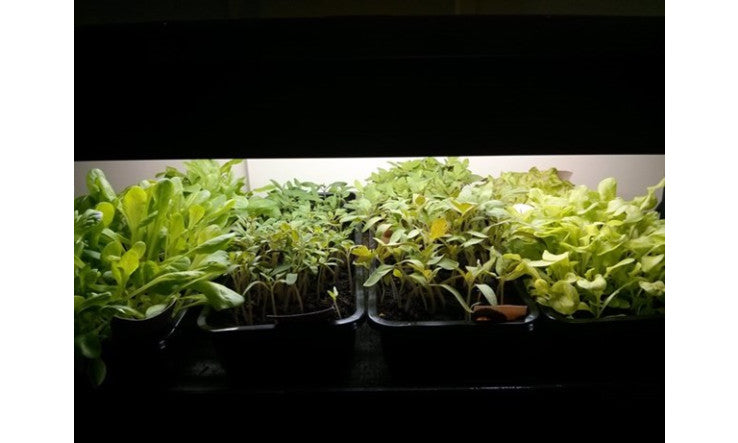...in the photo, my friend Julie's 2015 indoor mini greenhouse
I'm reading Toronto-based Canadian columnist Sarah Elton 's first book, Locavore , after reading her latest book , Consumed - Food for a Finite Planet or How We Will Feed the World by 2050 , and it's absolutely fascinating .
In Locavore she takes a look at the Canadian food situation, while in her second book she opens up internationally by observing initiatives all over the world.
Basically: organic is more viable and profitable for growers to the extent that they manage to create networks that cut out the "middle men" and sell, through Coop or CSA, directly to consumers. But without organic, cultivation is dependent on expensive inputs (seeds, fertilizers, pesticides) that eat up all the profitability. With organic and the return to traditional crops, we harvest our seeds, so no financial investment is necessary (we come back to a conversation I had with your boyfriend and you last summer, I have some ideas).
I am working to create this network directly on the farm for my family at first and my first observation: we must also bring together producers of unique products (maple syrup, mushrooms, fruit trees, etc.). Market gardeners who produce a variety are more concerned by the baskets as we know them, but apple producers who go through the baskets (from Lufa for example) are already cutting their profits (I have been getting my supplies from the organic orchard in Oka since this year, their apples are incredible and it is a couple of translators who run the orchard, very friendly and interesting, the new seed of modern growers I would say). In short, we must find a way to network small producers in a kind of cooperative.
Farming on the back side of the calendar is the name of the American technique, Cookstown greens is the farm north of Toronto that is the Canadian winter version.
Otherwise in Consumed she paints a very clear and alarming picture (it must be said) of the state of seeds in the world, of the loss of food biodiversity, and I think that there is really awareness to be raised at this level, reasons that go far beyond our individual health for which we must support through our purchases a local, organic and GMO-free agriculture in order to preserve our ancestral cultures. Slow food also does this work, but it is not only the Montreal melon that must be helped...
Otherwise, I will participate today for the 3rd time in troc tes trucs, in Villeray this time, I have been interested in it for years and I think it is a great system.
On a nice day it could easily be done under the model of the outdoor fair elsewhere.




































































Leave a comment